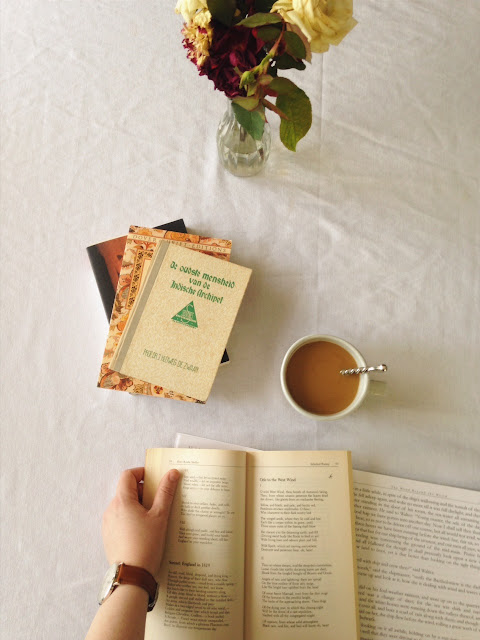C.S. Lewis's desk in the study at The Kilns (his home outside Oxford)
Or what if someone from history were alive today, instead of in their time? What if J.R.R. Tolkien was alive today, for example (he died in 1973)? He would have been raised differently due to technology and the machine advancements of our time (which he detested in his own time). He would not have served in WWI and would not have had certain ideas stemming from that experience to write about (such as the sudden image of a Hobbit living in a hole in the ground). Would The Lord of the Rings and all the sub-created world of Middle-earth ever been written?
If C.S. Lewis were alive today, writing at his desk at The Kilns, would his views of the this modern day change the story of Narnia? In his many essays, he wrote with valid concern about the direction our world was going (from his point of view in the 1950- early 1960s). He joked about how he was the last of the dinosaurs, but he also wrote about space travel. What would he write about today looking ahead from our modern perspective?
Isn't it interesting to think about how we are alive at a certain time for a purpose? It is not a mistake that you are here right now. It might feel like sometimes you belong in a different decade, but you were made to be alive today, and to bring your talents forth for good.
Shakespeare, for instance. If he were alive today instead of during 1560-1600s, would the English language evolve as we know it today? Not at all. Shakespeare penned so many of our words used today, which did not exist until he wrote them down in his plays! Words like baseless, bedazzled, belongings, dishearten, dwindle, multitudinous, sanctimonious, watchdog. Or phrases like "wear one's heart on one's sleeve", "a laughing stock", and "all that glitters isn't gold" come from Shakespeare's writings. These words and phrases simply did not exist until his creativity was put to good use in his plays that we read today. His influence on our language is immensely palpable.
All this wondering reminds me that we are here to do our part and it is of utmost importance for us to get moving with what we were made to do. I focus on words, language, and writing of course, but that is not the only essential talent we need in this world. Your talent has purpose in this time you are in right now. Thank goodness you are here in 2017, as your talents are needed for good. You don't know how far-reaching that good is.
















